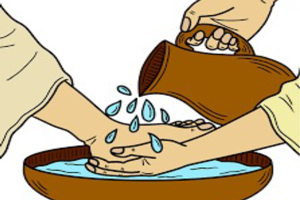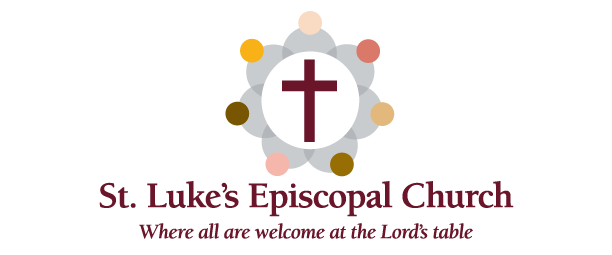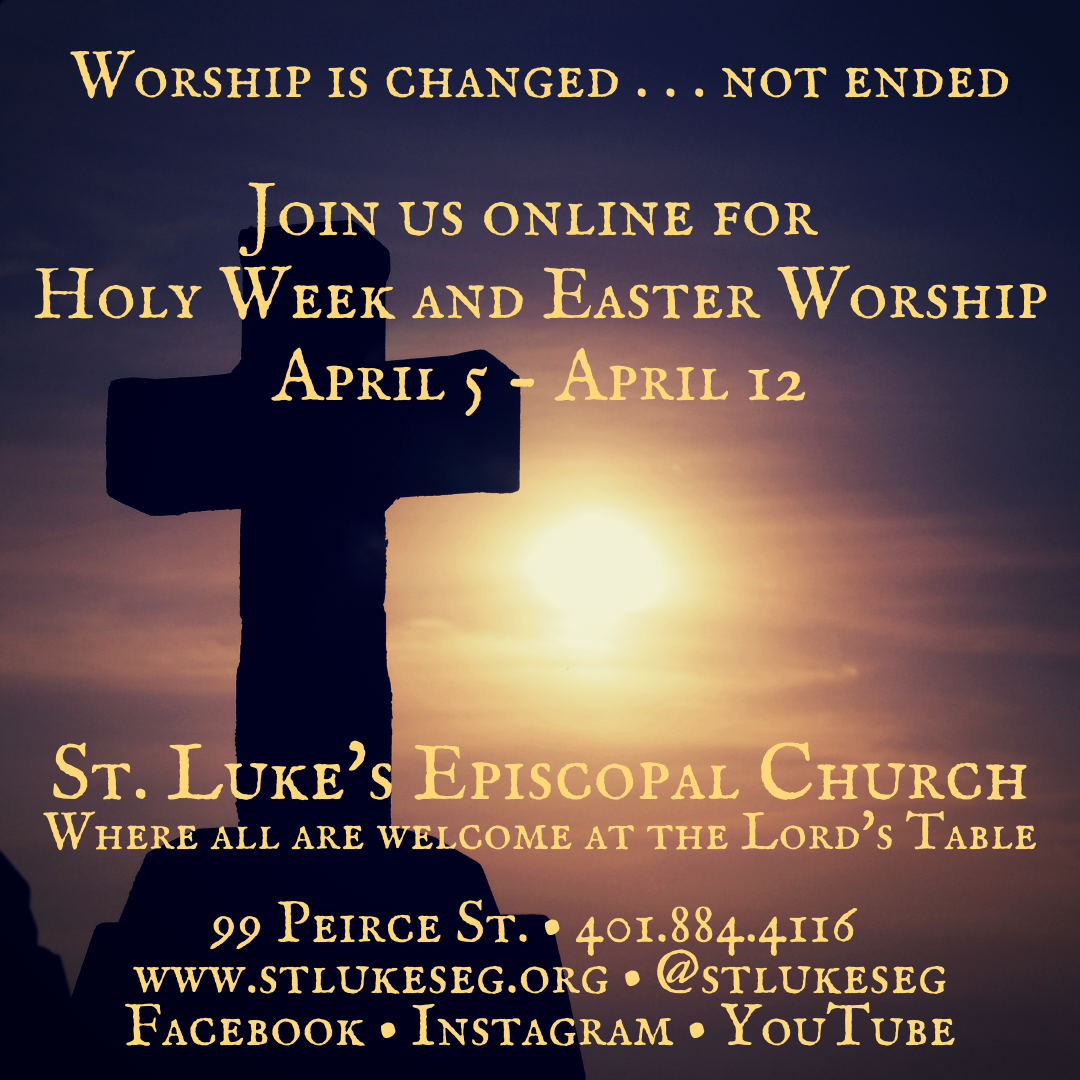Home > Lenten Blog 2024
Servant and Priest
March 28, 2024

Exodus 12:1-14 | 1 Corinthians 11:23-26 | John 13:1-17, 31b-35 | Psalm 116:1, 10-17
Maundy Thursday is a day of traditions. Jews and Christians alike celebrate the Exodus from Egypt with a Passover meal. Christians celebrate the institution of Holy Eucharist. Christians also have made a tradition of Christ washing the disciples’ feet. Understand, this was not a tradition until the sixties during the renewal movement. It has since come to symbolize Christ’s call to us to be servants to one another. And yet I wonder, is it more? When Christ washed Peter’s feet, Peter protested. Christ responded, “You do not know now what I am doing, but later you will understand.” Peter said to him, “You will never wash my feet.” Jesus answered, “Unless I wash you, you have no share with me.” (John13:7-10) What did Jesus mean by that?
First, we need to know the original “tradition”. In Jesus’ time there were no paved roads or cars, people walked the dry, dusty, rocky paths to get where they were going. When they arrived, their feet were filthy. It was not respectful to enter someone’s home with dirty feet. There would be a servant or available water to wash your feet, so you could enter and greet your hosts clean.
It sort of parallels the process of coming into God’s presence in the synagogue. Only priests were allowed to enter the holier portions of the temple and only after purification which included the ritual of washing and fasting. Only one individual was allowed into the “holy of holies” and then only with downcast eyes. Seeing God face to face was to risk certain death. Was Jesus trying to tell the disciples that he was making them acceptable to approach God? I believe he was. When Christ died, the curtain that separated the “holy of holies” was torn in two, opening the holy of holies to the whole world. Just as a traveler would be free to enter the home once his feet were clean, we are free to approach — to stand and look at God face to face because Jesus made us clean by his death on the cross. When he washed the disciples’ feet, he was preparing them to enter the holiest of places. He was, in effect, ‘ordaining’ them as priests of the New Covenant.
Does that change how we receive the foot washing? In one sense, no; Jesus used the foot washing as an example of servanthood, and we should do likewise. In another sense, it is more than that-it is a call to assume our position as purified people of God. “But you are a chosen people, a royal priesthood, a holy nation, God’s own people,[a] that you may declare the wonderful deeds of him who called you out of darkness into his marvelous light.” (1 Peter 2:9) Wait…we are priests? Yes, indeed we are, but before you break out the little white collar, what exactly does that mean. When we think of priests, we see a cleric with a lot of administrative duties, performing all kinds of teaching, healing, preaching, leading, etc. This “traditional” priest is usually connected to a religious denomination. That is not the priest Peter was talking about. When Jesus washed the disciples’ feet, he made them clean; when he died on the cross for our sins, he made all of us clean. The disciples were able to approach God as “priests” and enter into God’s presence. We, having also been made clean, are also called to be “priests” in God’s kingdom and are free to enter God’s presence. Peter states clearly the duties of the royal priesthood of God’s kingdom. We are to proclaim the Glory of God and declare His good deeds to all people.
Wow, that kind of blows my mind apart. I mean, how are we supposed to be? What are we supposed to do? (It shifts me out of my comfort zone, to be sure) Where do I go from here? If we accept that we are priests in God’s kingdom here on earth, that answer is quite clear: we need to become God’s people, living a life focused on God, not ourselves. Just as Jesus surrendered his life into the hands of the Father, we need to place our trust in Jesus and place our lives in His hands so that he may teach us how to live, teach us how to give, and bring forth praise and glory to God the Father.
At the foot washing, the Holy Eucharist, and the stripping down of the altar may we see ourselves washed, fed, and laid bare in surrender to the Holy Spirit. May we accept the call to priesthood in God’s Kingdom and become God’s People.
Cindi Lovejoy


